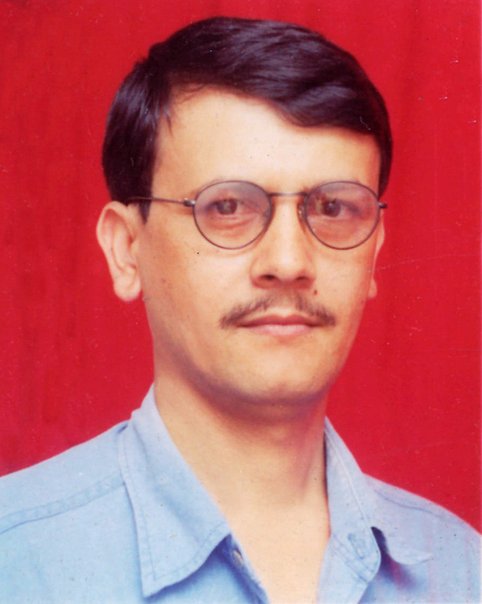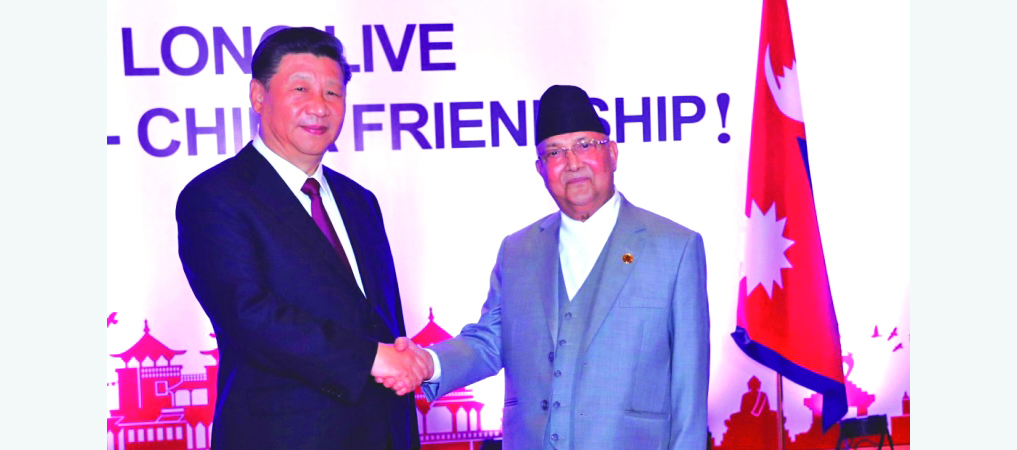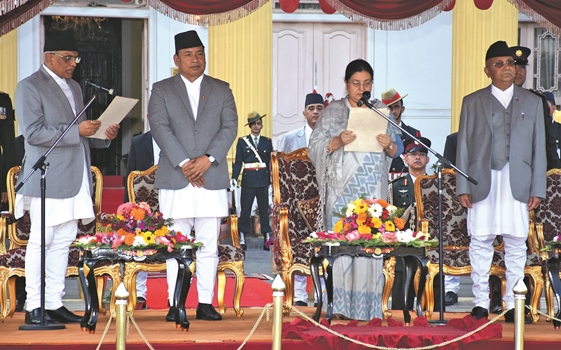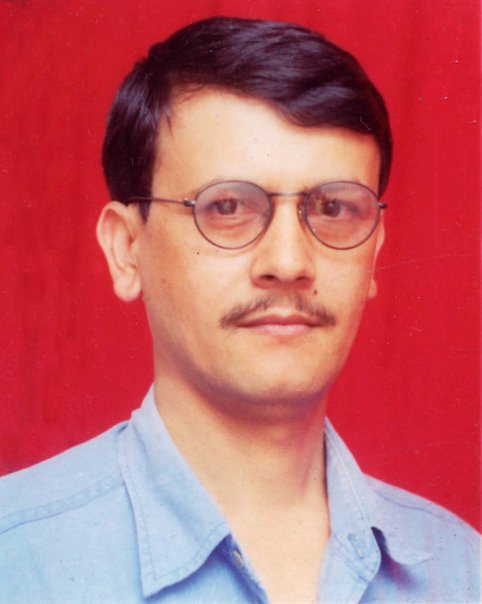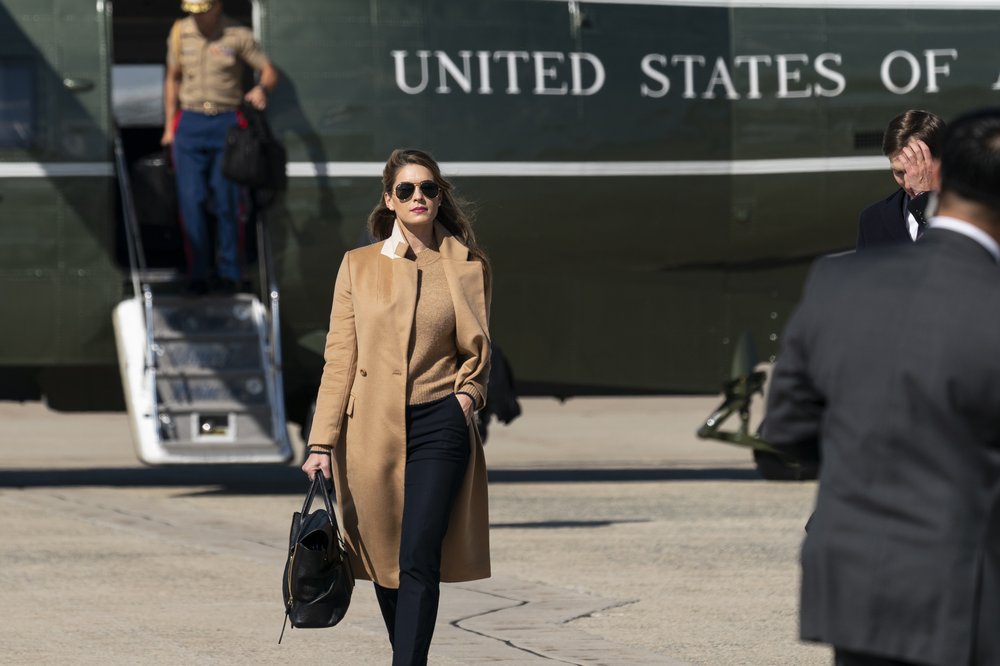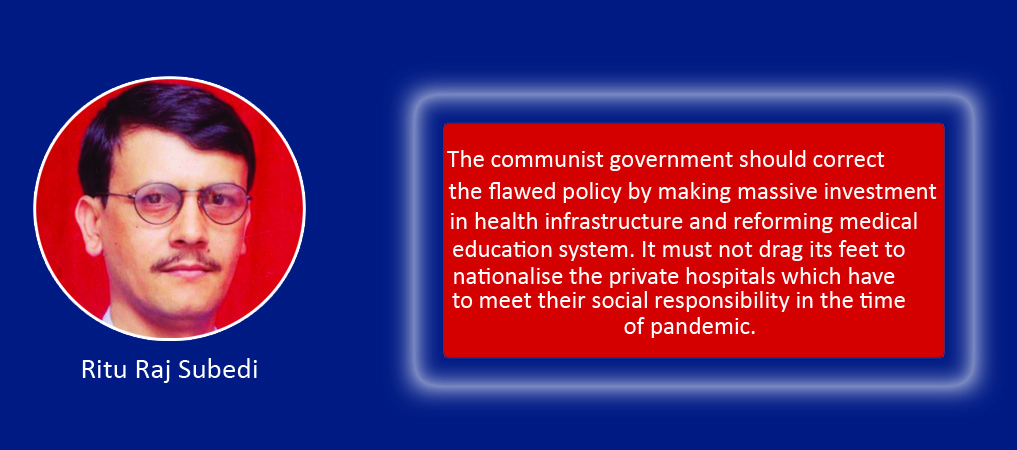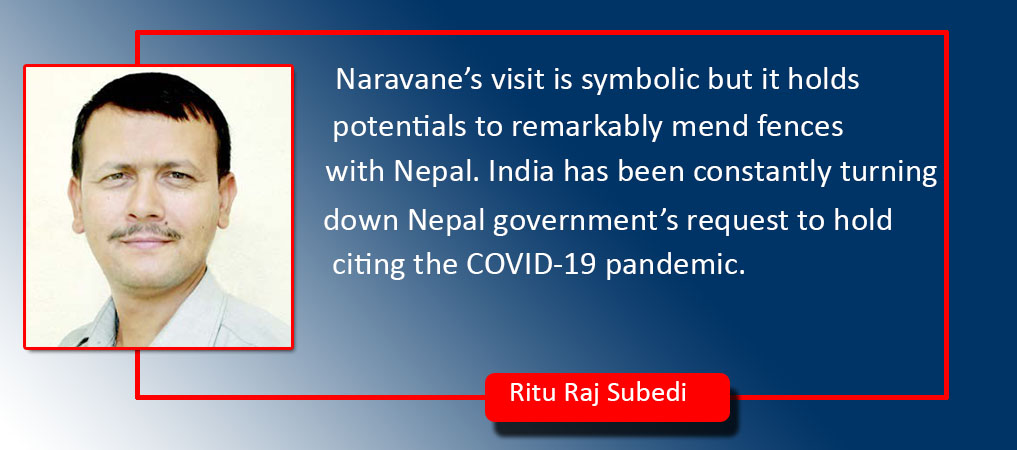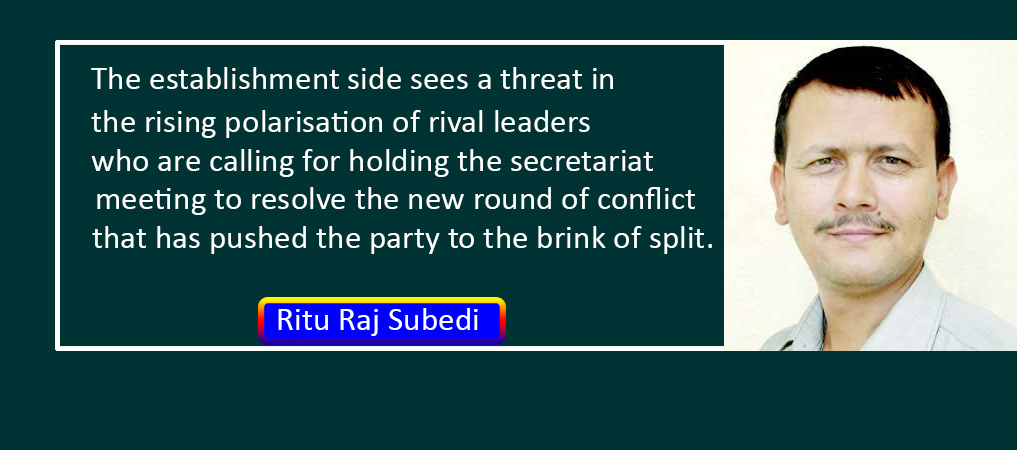NCP Unity In Jeopardy
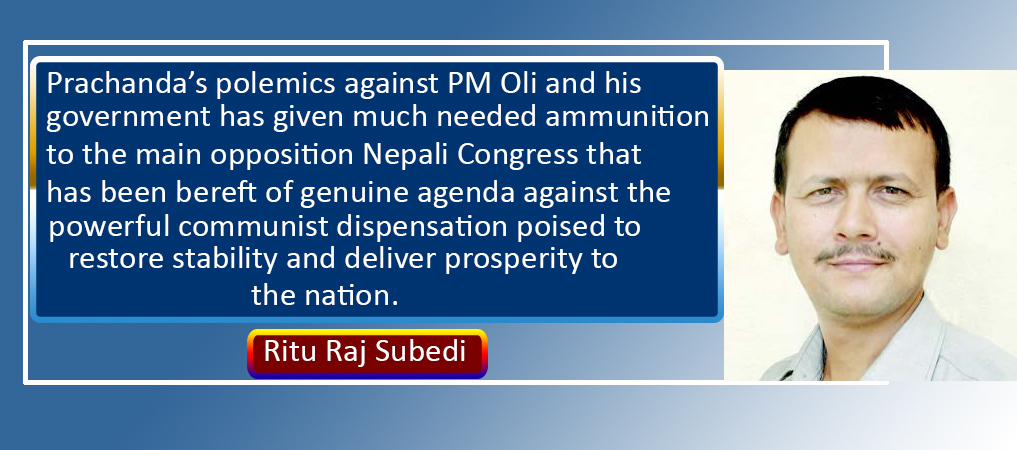
Ritu Raj Subedi
The unity within the ruling Nepal Communist Party (NCP) has fallen into a trap of escalating crisis. Party’s two chairs– Prime Minister KP Sharma Oli and Pushpa Kamal Dahal Prachanda– have retreated into a series of mutual recriminations that have driven it to pre-unification phase. The two leaders had played their pivotal role in unifying the erstwhile CPN-UML and CPN-Maoist Centre into a largest political force, enabling it to secure resounding victory in the historic elections in 2017. There was an agreement that the party’s every major decision will be taken based on the consent of two chairmen until its unity convention is concluded. After Prachanda presented a 19-page political proposal at a recent secretariat meeting, slamming PM Oli and his administration, the party unity has been precipitated on the verge of collapse.
Accusation
In his document, Prachanda has accused the government of being involved in scores of corruption cases and failing to fulfil electoral promises. He blames that Oli has displayed authoritarian character, and asked him to make ‘sacrifice’ implying that he should quit the post of PM. However, PM Oli has dismissed Prachanda’s proposal as a ‘charge sheet full of lies and misinformation’. In the beginning, Oli announced not to respond to it. It seems Prachanda’s ‘blotter’ has turned out dynamite planted to blow up the party’s fragile unity and government’s stability. Oli demanded that Prachanda must withdraw it before calling for the next secretariat meeting. As other influential secretariat members declared that they also owned it up, the PM stepped back from his position. With the mounting internal and external pressure, the war of nerves between the two chairs has subsided for the time being. The secretariat has granted Oli 10-day time to reply Prachanda’s proposal ‘word by word’.
The NCP’s worst intra-party bickering has now entered a ‘cooling-off period’ so that warring parties can find a middle ground to avert the crisis. However, the two sides will present themselves more aggressively, taking strategic moves to weaken each other during this period. The sad scenario is that there is lacking trustworthy mediators, who can douse the fire of animosity and establish a credible truce between Oli and Prachanda-Nepal factions. Given the severity of conflict, it is difficult to predict how the two chairs make peace and save the party. Prachanda’s proposal has become a big issue for PM and his loyalists. They insist that it has rendered all past agreements and understanding null and void. At the secretariat meeting held on November 18, Oli had put it on the line: “No one can stick to the post of chairman or Prime Minister without settling these charges. Either the allegation should be justified or the accuser should be relieved of his responsibility.”
Should the both sides harden their position, they will find themselves up a gum tree. However, if one goes through the history of Nepali communist movement, s/he is little surprised as they find the top leaders engaged in a rancorous shouting match at a personal level. There has been a tendency to lay grave charges against their own comrades over minor ideological differences. The founding father of Nepal’s communist party, Pushpa Lal Shrestha, was accused of being ‘gaddar’ (traitor) by none other than a veteran communist leader – Mohan Bikram Singh but the latter realised his mistake for insulting the communist icon. The communist leaders cross swords, leading to the split of the parties mostly in two situations: When they disagree on the party’s guiding principle and tactical line or when they are in power, jockeying for lucrative positions and posts.
A bitter intra-party squabble had caused a vertical division in the former UML in late 1990s. Bam Dev Gautam, who is currently NCP vice-chair, had split the UML over the Mahakali Treaty and formed CPN-ML. The then UML establishment had flown into a rage over his action. The then UML leader Pradeep Nepal had declared Gautam as the country’s number one corrupt at a gathering of party’s workers at Khula Mancha. This was obviously politically-motivated campaign against own former leader. Gautam later rejoined the parent party, and corruption charge against him was all water under the bridge. In a tit for tat move, Yogesh Bhattarai and Ghanashyam Bhusal– both are now ministers-- had once made public a long list of charges against present PM Oli when they were with Gautam. Bhattarai and Bhusal have not yet disavowed their charge sheet against Oli made in the past but they feel no problem working with the accused now! This makes clear that the angry comrades heap criticisms on their leaders for proving themselves ideologically and morally superior. But this is hardly true. The accusers are least bothered about moral scruples that prevent them from forging unprincipled compromises to stick to power.
Ammunition
Prachanda’s polemics against PM Oli and his government has given much needed ammunition to the main opposition Nepali Congress that has been bereft of genuine agenda against the powerful communist dispensation poised to restore stability and deliver prosperity to the nation. The two chairs’ accusation and counter-accusation will further dent the ruling party’s political and moral strength to govern the nation with confidence and competence. This is the time to maintain mutual accountability, not to get engaged in hostile blame game that makes a mockery of popular mandate and frustrate the masses hit hard by the COVID-19 pandemic and its crippling economic fallout.
(Deputy Executive Editor of The Rising Nepal, Subedi writes regularly on politics, foreign affairs and other contemporary issues)
Recent News

Do not make expressions casting dout on election: EC
14 Apr, 2022
CM Bhatta says may New Year 2079 BS inspire positive thinking
14 Apr, 2022
Three new cases, 44 recoveries in 24 hours
14 Apr, 2022
689 climbers of 84 teams so far acquire permits for climbing various peaks this spring season
14 Apr, 2022
How the rising cost of living crisis is impacting Nepal
14 Apr, 2022
US military confirms an interstellar meteor collided with Earth
14 Apr, 2022
Valneva Covid vaccine approved for use in UK
14 Apr, 2022
Chair Prachanda highlights need of unity among Maoist, Communist forces
14 Apr, 2022
Ranbir Kapoor and Alia Bhatt: Bollywood toasts star couple on wedding
14 Apr, 2022
President Bhandari confers decorations (Photo Feature)
14 Apr, 2022
